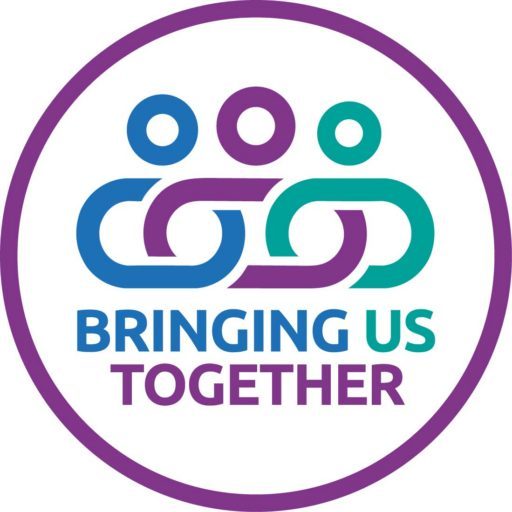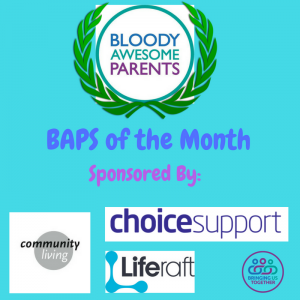#107 days of action Bringing Us Together: promoting citizen advocacy
Today’s post is a guest post from Barbara Perry
In my experience citizen advocacy (c.a.) can bring about long term valued relationships for learning disabled individuals and what’s more guard against abuse. My Day 94 blog on the subject ended with a call to promote citizen advocacy .
The first get together of respondents took place on the evening of 6th August…Sam Clark, Liz Wilson, Vicki Raphael, Katie Clarke, Katie Peacock, Kelvin and I met in the suburbs of Leeds. Whilst enjoying drinks and a tasty good value meal we had the opportunity to get to know each other, listen and share views and experiences about many topics of mutual interest. As Katie Peacock said it was a great start! Fun and fellowship! I found everyone’s enthusiasm really stimulating – thanks all.
Many subjects were covered:
- Justice for LB that brought us together was lauded; the beauty of the campaign is there are no rules. Sara, George and co. welcome and value everyone’s support and this is doubtless one of the reasons for its success.
- Assessment and Treatment Units were on the agenda, it being acknowledged that the difficulties in discharging would be alleviated if the funding travelled with the individual.
- There was much talk about what was seen as a diminishing grassroots movement in advocacy and need to help develop communities that look out more for each other. We looked at the history of citizen advocacy, the value of, and difficulties in, setting up c. a. partnerships and circles of support, and how the introduction of a statutory mandate in advocacy has side-lined and diverted funding away from citizen advocacy. Advocacy effectiveness and the difficulty in measuring the value of long term outcomes was touched on too.
- Within the forthcoming Care Act we discussed what might be meant by the term ‘independent advocacy’ and wondered how local authorities are going to fulfil their forthcoming duty to provide it. (http://www.darlingtondisability.org/Independent_advocacy%20rights%20guidance.pdf)
- The LBbill came up too; it was acknowledged that ensuring individuals gain the services to which they are entitled could well be at odds with the resource neutrality of advocacy.
- We agreed that knowing someone well, knowing their ways of communicating and drawing on their life history is invaluable and can never be underestimated in seeking meaningful outcomes for the individual.
What were our expectations of the get-together?
Personally I wanted to once again promote the reciprocal value of citizen advocacy partnerships particularly for learning disabled individuals who have no one speaking up on their behalf.
I was also keen to hear about the experiences and struggles of the family carers present and how they champion the voice (verbal and no-verbal) of their young people. Katie P and Kelvin told us how they had achieved justice for two learning disabled people they had been looking out for through the High Court.
Several people were talking about their fears of ‘not being there’ for their family member in the future and how this underlined the importance of community links and having someone else anchored alongside the individual who helps hold onto their history and culture.
Sam emphasised the importance of having connections with people so they can support each other as allies. Katie P stresses supporters can be family, friends, neighbours as well as advocates. They have a role to play in enabling self-advocacy – learning disabled individuals to advocate for themselves – as well as speak up their behalf.
Although they have journeyed a long way and seen their disabled children achieve much of value in their lives, Vicki and Katie C are still perplexed by the complexity, lack of clarity and ‘smoke and mirrors’ involved in the whole process…something which they emphasise is not easy to negotiate alone. Unfortunately there is an apparent lack of awareness of rights and the social model of disability. More experienced parents can pave the way and support the next generation of parents to have high aspirations and expectations of their young people.
So what’s next?
There’s already a date for the next get-together in the early evening on 23rd September in Leeds. If you’re interested in looking at ways of developing more informal supports for learning disabled people in their local communities and making/keeping connections for mutual support get in touch and come along!
Mum to three great kids, each with a different SEN.
Transplanted from the NW to the SE.
Co-founder and Director of Bringing Us Together








